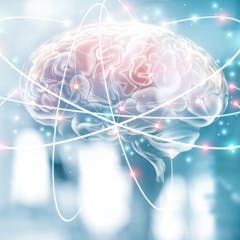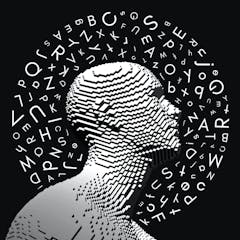
Articles sur Brain
Affichage de 21 à 40 de 583 articles

Oral contraceptives modify the menstrual cycle. What’s less well known is that they also reach the brain, particularly the regions important for regulating emotions.

Lots of factors can influence your music taste, from your age and where you’re from to the personality traits you have.

Fibre isn’t just associated with colon health; it’s associated with overall health and brain health through the gut-brain axis. But not all fibres are created equal.

The preference for fairness emerges early in childhood, suggesting it is to some extent hardwired.

AI will not become sentient and decide to kill us all. But our own conscious or unconscious beliefs about AI can potentially increase the likelihood of any outcome, including catastrophic ones.

Doing two things at the same time isn’t always as productive, healthy or safe as focusing on one thing at a time.

Montréal is home to one of the world’s largest brain banks, the Douglas-Bell Canada Brain Bank, where discoveries about different neurological and psychiatric diseases are made.

New research shows that scrolling through Instagram can effect our processing and language capabilities. Listen to The Conversation Weekly podcast.

Neuromorphic computers aim to one day replicate the amazing efficiency of the brain.

Here’s what’s going on in your body when you drink alcohol just before bedtime. And if you want to drink at the Christmas party, we have some tips on how to protect your sleep.

The human brain uses up 20% of the energy we consume.

It’s important to identify the root causes of your stress and to find the coping mechanisms that work best for you.

Electroconvulsive therapy often evokes inaccurate images of seizing bodies and smoking ears. Better understanding of how it reduces depression symptoms can illuminate new ways to treat mental illness.

Lifestyle-related dementia risks are complex, with factors like sleep, exercise, diet and social contact interacting with things like cognitive reserve, neuroplasticity and inflammation in the body.

Concussion doesn’t just affect the brain, but the whole body. The interaction of the ‘heart-brain axis’ means that as the brain works to heal its injury, it puts extra stress on the heart.

Music therapy has been shown to help people suffering with cancer, chronic pain and depression. Our research is testing which parts of the brain are affected by different kinds of music

Scientists measured the brain activity of people trying to discern real from synthetic faces.

Our study found that people born with a with a particular fold in their brain develop frontotemporal dementia symptoms on average two and a half years later than others.

Most people can draw from tens of thousands of words in their memory within milliseconds. Studying this process can improve language disorder treatment and appreciation of the gift of communication.

Change in the brain usually comes with plenty of effort over time. Neuroscientists are working to understand how psychedelic drugs provide a shortcut that seems to rely on existing brain systems.
